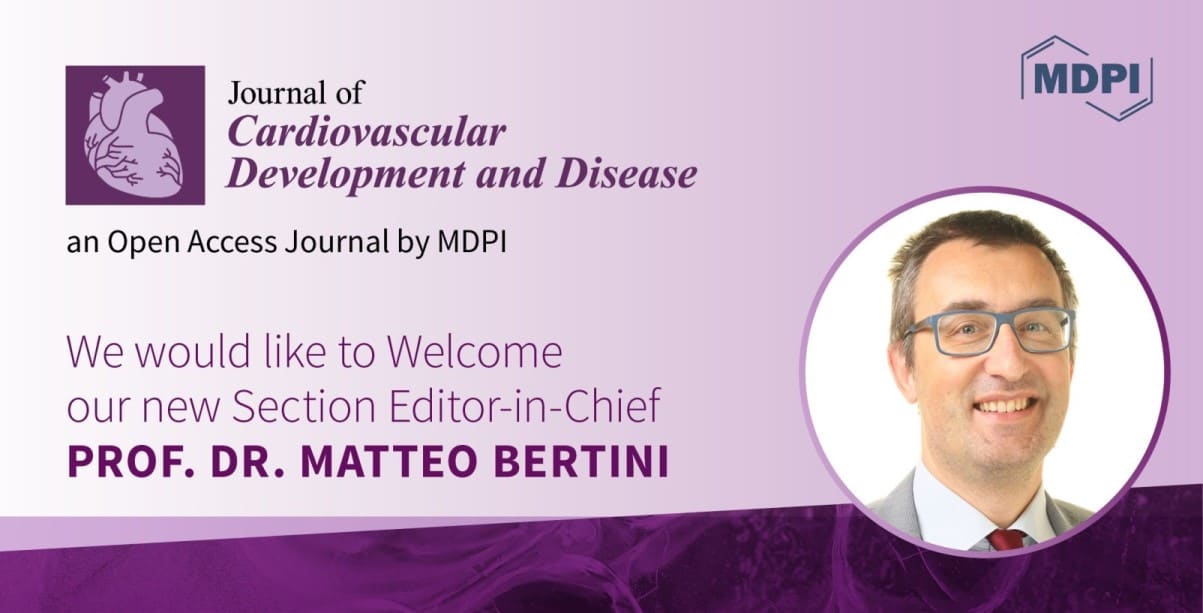
Prof. Dr. Matteo Bertini Appointed Section Editor-in-Chief of Section "Electrophysiology and Cardiovascular Physiology" in Journal of Cardiovascular Development and Disease
We are pleased to announce that Prof. Dr. Matteo Bertini has been appointed Editor-in-Chief of the Section "Electrophysiology and Cardiovascular Physiology" in the Journal of Cardiovascular Development and Disease (JCDD, ISSN: 2308-3425).
Prof. Dr. Matteo Bertini is an Associate Professor of Cardiology with a full professor qualification from the University of Ferrara. He is the head of the EP lab in the Cardiology Unit of the University Hospital of Ferrara, with a research focus on (i) arrhythmias, (ii) cardiac pacing, (iii) sudden death prevention, (iv) genetics and (v) ablations. He obtained a degree in medicine and surgery, and then completed a specialty in cardiology with a subspecialty in electrophysiology. He also obtained two Ph.Ds.
The following is a short Q&A with Prof. Dr. Matteo Bertini, who shared his vision for the Section with us as well as his views on the research area and open access publishing:
1. What appealed to you about the journal that made you want to take on the role of its Section Editor-in-Chief?Being a Section Editor-in-Chief of JCDD represents the possibility of participating decisively in the process of scientific advancement in this area of investigation. The "Electrophysiology and Cardiovascular Physiology" Section is facing several innovations both in cardiac pacing and ablation field; therefore, it is very appealing to share this new evidence in a dedicated journal.
2. What is your vision for the journal?By covering a wide range of topics in cardiac pacing and ablations, JCDD is becoming a reference in this research area. Open access means that the research findings are available to all, promoting faster and more effective development of knowledge around the world.
3. What does the future of this field of research look like?The future of this investigation field is going to revolutionize the EP world, in particular, thanks to the conduction system pacing and other innovations such as cardiac pacing and electrophysiology which joined again as a unique field that covers all arrhythmias treatments from brady to tachy.
4. What do you think of the development of open access in the publishing field?Open access is inevitable for the capillary diffusion of knowledge. Everyone around the world can have full access to scientific information published in all scientific journals. Thus, open access represents a necessity in a democratic system.
We warmly welcome Prof. Dr. Matteo Bertini as Section Editor-in-Chief of “Electrophysiology and Cardiovascular Physiology”, and we look forward to achieving many milestones under his leadership.
